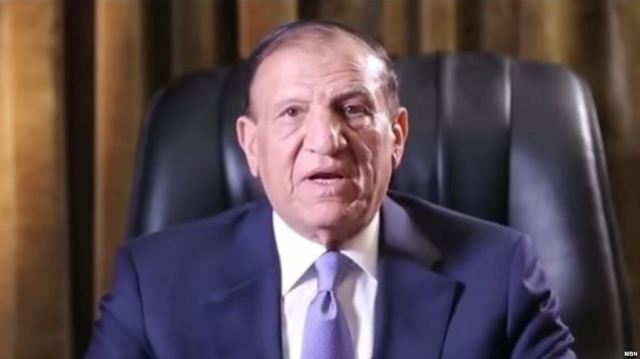Here is an English version of my latest Arabic piece for Al-Hurra

Hours after Egyptian President Abdel Fattah el-Sisi declared his candidacy for March’s presidential election, former armed forces Chief of Staff, General Sami Anan, also declared his intention to run for President. His declaration was quickly followed by many supportive and animated responses on social media from both Islamist and non-Islamist opponents of President Sisi. A few days later, however, Egypt’s army released a statement calling the General’s announcement an incitement against the military, and said it was summoning him over the issue.
The controversies regarding General Anan’s quest for the presidency are not the core issue in my opinion. But his candidacy exposes the flawed thinking of General Anan, his team, and his supporters.
General Anan, once described as “thoughtful, astute, and competent professionally,” by Admiral William J. Fallon, retired head of the United States Central Command, seems to have carefully planned his political comeback. He served as Mubarak’s military Chief of Staff for years, then as a senior member of the post-Mubarak ruling Supreme Council of Military forces (SCAF), only to be later sacked by the Muslim Brotherhood’s President Mohamed Morsi.
General Anan focused on the grievances of Sisi’s opponents, and presented himself in his video announcement as a team leader, rather than a one-man project. He announced two important civilian figures in his campaign: Hisham Genena, Egypt’s former top auditor, who Sisi sacked in 2016, and political scientist Hazem Hosny, his official spokesman. General Anan’s video announcement was also full of subtle but strong criticisms of Sisi, whom he described as just one candidate among others “who may leave the office in a few months.”
But General Anan’s approach and the strategy of Sisi’s opponents were misguided for many reasons.
First, one would assume that an experienced military General like Sami Anan, with such extended military experience, would adopt a cautious, tactful approach toward his own military establishment. Announcing his candidacy before receiving formal permission from the military was a fatal lapse in judgment. There has been a history of disagreements between senior military ranks in the past. The conflict between President Nasser and his military chief Abdel Hakim Amer, following 1967 defeat, is but one example. However, never in the history of Egypt’s military establishment was an ex-General was favoured at the expense of a serving president. The military establishment in Egypt wants to project a united front. Any assumption otherwise is nonsensical and simply delusional.
Second, the hasty support from Sisi’s opponents for Anan’s candidacy—even before reading the details of his manifesto—projects how disconnected his supporters are from the public and its demands or aspirations. For example, none of those who cheered Anan on social media questioned his economic plan. He did not announce an economist within his presidential team, despite knowing that the economy and inflation are the top concerns for many Egyptians. Anan’s supporters were focused on one task: Anyone but Sisi.
Third, General Anan ‘s vague attitude and handling of Islamist groups has raised many questions. After years of demonising Egypt’s military forces as the “ruling Junta,” guests on pro-Brotherhood channels gave various justifications for backing General Anan, an ex-military man, as Egypt’s next president. Furthermore, according to Turkey’s Anadolu news agency, Youssef Nada, the Muslim Brotherhood financial strategist, set “six conditions” for backing Anan, including asking imprisoned ousted president Morsi (who once sacked Anan) to “formally step down.” The timing of such surreal demands exposed the Brotherhood’s mediocrity and haste, and ruined Anan’s chances to get military approval of his candidacy.
Fourth, and more importantly, any assumption that ordinary Egyptians would favour an ex-military leader over their current ex-military president is naïve. Egyptians prefer democracy to autocracy, but if they have to choose an autocrat, they will choose a strong one; not a bridge figure who might enable many hollow parties to jump aboard and ruin an already vulnerable ship.
It is too early to judge Sami Anan’s legacy. There are, however, similar qualities that General Anan shares with another army man, Mohammed Naguib, Egypt’s first president after ousting King Farouk in the 1950s. Although Naguib’s discourse was different, both men were two accommodative to the Army’s nemeses, particularly from the Islamist camp, to a degree that earned them much despise from the rest of the military establishment.

